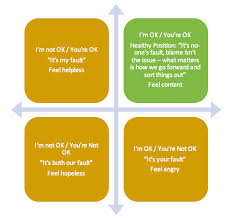



Overview
Transactional Analysis (TA) provides a framework for understanding how our social interactions shape communication patterns, emotional responses, and relational dynamics. Developed by Eric Berne, TA reveals how we unconsciously take on different ego states that influence our relationships.
The three primary ego states are:
Parent – A learned voice of authority, rules, and expectations
Adult – A rational, present-moment perspective
Child – Emotional responses, impulses, and conditioned reactions
By recognizing which ego state we are operating from, we can improve self-awareness, strengthen emotional intelligence, and build healthier relationships.
Life Transitions Readings
Transactional Analysis significantly influences how we navigate change, uncertainty, and emotional evolution. Recognizing these patterns allows individuals to approach transitions with greater self-awareness and relational clarity.
Life transitions often trigger shifts between ego states, and understanding these shifts can create greater emotional adaptability:
A person operating from an Adult state may approach transitions with logic and adaptability, remaining open to solutions.
A person reacting from a Child state may feel overwhelmed, avoidant, or anxious, struggling with self-regulation.
A person speaking from a Parent state may impose rigid expectations on themselves or others, leading to frustration.
Since ego states fluctuate, self-awareness allows individuals to consciously shift into a state that best supports their growth during life transitions. By identifying and adjusting these patterns, individuals can cultivate emotional resilience and healthier responses to change.
Baby and Child Readings
A child’s relational tendencies develop in response to their caregiver’s communication patterns. Recognizing these early tendencies allows parents to create an environment of emotional security and connection.
Children naturally oscillate between different ego states as they develop emotional intelligence and social skills:
A parent operating from a Critical Parent state may need to shift into a Nurturing Parent approach, providing support rather than control.
A child reacting from a Rebellious Child state may need clear communication and emotional validation rather than punishment.
A child in an Adaptive Child state may conform to please authority figures but may require encouragement to develop confidence in their own decision-making.
By understanding these dynamics, parents can cultivate secure attachment, foster emotional intelligence, and prevent future relational struggles.
Couples Synergy Readings
Ego state dynamics play a crucial role in romantic relationships, shaping communication, emotional intimacy, and conflict resolution. Because relational scripts form early in life, many couples unconsciously repeat patterns from childhood interactions until they become aware of them.
Examples of how ego states influence relationships:
Adult-to-Adult communication fosters open dialogue, trust, and emotional stability.
A Parent-to-Child dynamic (one partner controlling, the other being passive) can create power imbalances and resentment.
A Critical Parent vs. Rebellious Child conflict can lead to defensive cycles, where one partner enforces rules and the other resists authority.
Relationships move through cyclical phases of balance, misalignment, and repair. By recognizing how ego states shift within the relationship, couples can restructure relational patterns, improve communication, and develop a dynamic of mutual respect and collaboration.